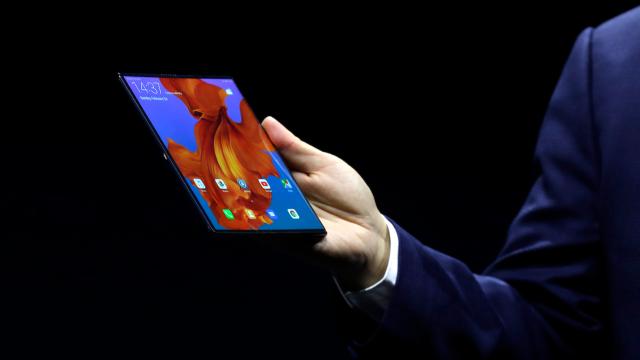Chinese telecom firm Huawei has recently come under intense pressure in the U.S. to prove that the company isn’t spying for the Chinese government. But if a new report is accurate, Huawei is ready to push back. Hard.
According to the New York Times, Huawei is preparing a lawsuit against the U.S. government that could be formally announced by the end of this week. The details of Huawei’s lawsuit are still unclear, but the Times claims that it will be an effort to force the U.S. “to more publicly make its case” that Huawei’s technology is somehow a threat to the privacy and security of Americans. Gizmodo has reached out to Huawei for comment on the potential lawsuit but did not immediately hear back.
The U.S. and other Five Eyes nations have alleged since at least 2012 that Huawei poses a national security threat to the west, especially if it’s allowed to build critical 5G infrastructure around the world. But the national security concerns that have been so far leveled by American intelligence agencies have largely been hypothetical. Any potential specifics on how the Chinese government would use Huawei to make Americans less safe have only been uttered behind closed doors.
From the New York Times:
The lawsuit that Huawei is preparing to file in the United States is expected to challenge a section of a defence spending authorization law that was approved last year. The provision blocks executive agencies from using telecom equipment made by Huawei and another Chinese company, ZTE.
According to one of the people familiar with the matter, Huawei’s lawsuit is likely to argue that the provision is a “bill of attainder,” or a legislative act that singles out a person or group for punishment without trial. The Constitution forbids Congress from passing such bills.
Top officials from the Five Eyes countries of the U.S., UK, Canada, Australia, and New Zealand reportedly met in July of 2018 to discuss the alleged threat from Huawei’s technologies. But, again, the charge that Huawei poses a national security threat is so far pretty vague. A lawsuit brought by Huawei would theoretically force the U.S. government to state its case publicly, and Huawei would essentially be calling the U.S. government’s bluff if U.S. officials couldn’t point to specifics.
But one can easily imagine a situation where the U.S. government would be hesitant to lay out specific charges against Huawei by citing national security concerns—a kind of Kafkaesque nightmare all around.
In January, the U.S. Justice Department announced charges against Huawei that include fraud, obstruction of justice, and the theft of trade secrets. And Huawei’s CFO, Meng Wanzhou, was arrested in Vancouver this past December at the request of the U.S. government for allegedly violating sanctions against Iran. Meng, who is notably the daughter of Huawei’s founder, faces extradition to the U.S. in the very near future.
On Friday, Meng filed her own civil lawsuit against the Canadian government, claiming multiple violations of her rights under Canada’s Charter of Rights and Freedoms. The Chinese government has accused both Canada and the U.S. of staging Meng’s arrest as a purely political stunt and have demanded her immediate release.
Huawei has been on a charm offensive over the past couple of months, with Huawei’s CEO even giving rare interviews to U.S. media. Ren Zhengfei, the billionaire founder and CEO of Huawei, even went so far as to call President Donald Trump a “great president.” Trump, who is arguably the dumbest person to ever hold elected office in America, has responded favourably to that kind of flattery in the past.
“No law requires any company in China to install mandatory back doors,” Ren said on January 15, according to the Wall Street Journal. “I personally would never harm the interest of my customers and me and my company would not answer to such requests.”
“I love my country, I support the Communist Party. But I will not do anything to harm the world,” Ren said, according to a report in Bloomberg News.
But Huawei’s public stance has become more adversarial over the past couple of weeks. For example, last week, Huawei’s rotating chairman didn’t pull his punches at the Mobile World Congress 2019 in Barcelona.
During his keynote speech, Guo Ping said, “Prism, prism on the wall, who’s the most trustworthy of them all?” a reference to the NSA’s Prism spying program, which became public knowledge in 2013 after whistleblower Edward Snowden exposed details of the effort.
“It’s an important question. And if you don’t understand that, you can go ask Edward Snowden,” Guo continued.
Huawei reportedly plans to sue in the Eastern District of Texas, which covers the location of Huawei’s U.S. headquarters in Plano, Texas. Gizmodo will update this post if we hear back from Huawei.
